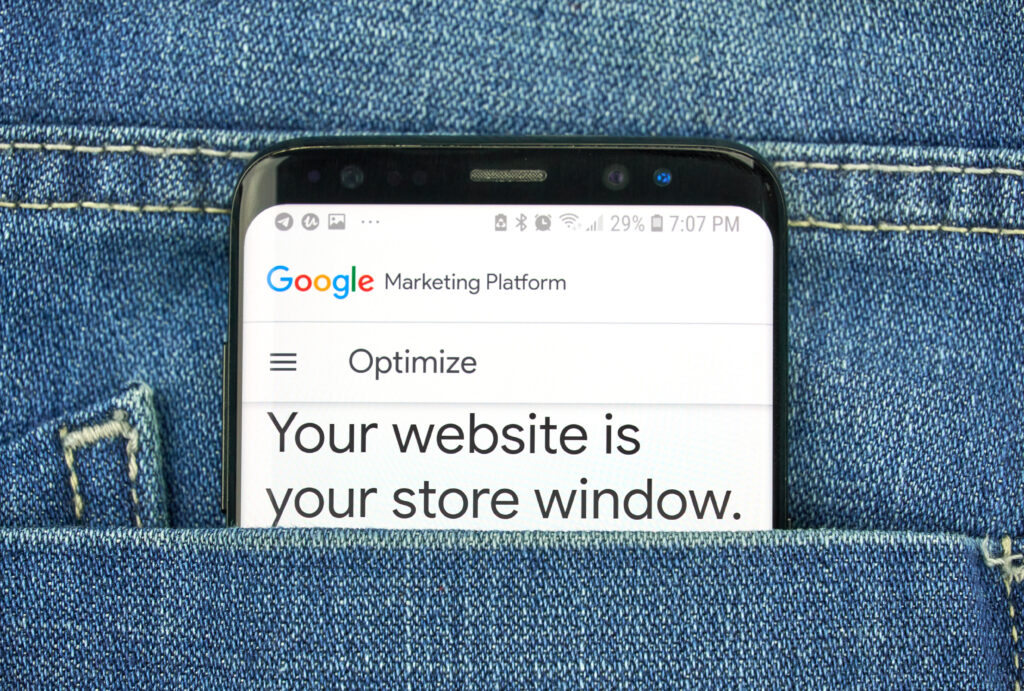“We are starting with an experiment”
Sundar Pichai, CEO of Google and Alphabet
True change, the Google case seems to tell us, requires founding values, the necessary time and the assumption of responsibility for the future. In recent months, more than a few people have thought that Google was “lagging behind” the competition. Google I/O 2023, the annual Mountain View conference dedicated to Web Developers, proved otherwise. As for Generative AI, Google has not limited itself to presenting yet another chat but has inserted AI directly into its “core” process, namely Search. This revolution enters the annals of the internet under the name of Search Generative Experience, SGE.
Unchanging traditions
In a world where technology is evolving faster and faster, Google is restoring the value of its two founding principles: search intent, the understanding of which once again becomes the centre of all development, and quality of the content of the results (we will now have to definitively start distancing ourselves from the concept of a simple website) without which BigG would lose its raison d ‘être. So, E.E.A.T. (Experience, Expertise, Authoritativeness and Reliability), now and always.
Google is taking another step forward, from being a search engine to becoming a response engine.
Less (perhaps), but more specific, searching
The conversational form of the new types of search and the advanced management of the user path could lead to a contraction of search volumes and increase long-tail searches, gradually decreasing the distance between the user and the final answer. A possible drop in volumes could have an impact on the space available to brands: the relevance of quality and originality of the content is significant here, as well as its structure which, in the future, will have to succeed in deepening both macro issues and increasingly detailed and specific responses.
Point of access
For a considerable time, the user path has ceased to be an orderly funnel but has become a “Messy Middle” of points of contact that dot, in scattered order, the user’s relationship with what he is looking for. There had long been talk of a slow loss of Google’s monopoly as a starting point for online searches, to the advantage of giants such as Amazon or TikTok, especially for certain age groups. This move, which apparently seeks to embrace the answers of all the other worlds, could bring BigG back again as a point of access also for the new generations.
Kaleidoscope effect
When we talk about optimised content, we will no longer refer to the text on the page alone, but to an ecosystem of coherent elements that revolve around the brand, in a kaleidoscope effect of responses that must be built in synergy. SEA and SEO, for example, will have to be built in a more and more integrated manner in order to guarantee sponsored content – with their respective landing pages – fully in line with the response provided by AI.
Responsibilities and Sources
Generative AI responses are known to have many limitations, and Google’s attitude is very cautious. For some time, the Guidelines that the company provides to its quality raters have invited us to consider YMYL (Your Money Your Life) topics as sensitive, that is, topics which could cause damage in the event of inaccurate or unreliable content: this attitude will also remain fundamental to the new era of Search Generative Experience. An important space will also be dedicated to citing the sources selected among the most relevant content for the research carried out. Being present is not enough, but it will be increasingly necessary to be able to provide the best quality result and become one of the most authoritative sources for your sector.
The SEO of the future
The change involving Search could lead, for certain types of search, to a contraction of the offer of organic visibility on the engine – it will depend a lot on whether and how much the method of using the SERP will change – and, consequently, certain KPIs, for example, Impressions or Conversions, may acquire more relevance, to the detriment of SEO KPIs, widely used today as Positioning or Organic Traffic. More conversational searches could lead to a drop in direct traffic to websites but convey a qualitatively better traffic, as the answers provided by the new SGE will accompany the user closer to the conversion.
The role of content quality will remain fundamental: the results reported as the main sources of “self-generated” responses will always be those that are qualitatively more relevant and/or more cited (inbound links). It will be essential to combine textual content with other formats (videos, images, perhaps even audio in the future) to offer users a satisfactory experience that meets new usage habits.
Google still has every interest in preserving the work of those who produce quality content, continuing to direct users to websites, since these are the very sources that allow AI systems to provide accurate and up-to-date answers. However, it will be necessary to think, even more than today, about 360° optimisation of the entire ecosystem, without focusing exclusively on on-site content.
The future of Search will therefore be increasingly “fluid” and, within the SERP, we will find a set of answers to our increasingly varied and complementary search intentions: from TikTok videos to Google Merchant feeds (with a possible changes regarding the elements and pages on which to focus optimisation).
This article was written by Gabriele Toschi, Head of SEO.

















